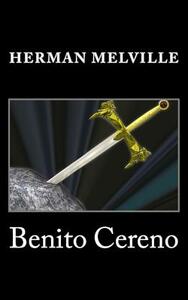You need to sign in or sign up before continuing.
Take a photo of a barcode or cover
tense
slow-paced
adventurous
mysterious
slow-paced
Plot or Character Driven:
Character
Strong character development:
Complicated
Loveable characters:
No
Diverse cast of characters:
Complicated
Flaws of characters a main focus:
Yes
Read this for an American Literature class. I did really enjoy this story, but the writing and language was very intense. I don't think I would have understood even half of what Melville was talking about if I wasn't going over the information in class as well. I do think it starts a really interesting conversation about racial politics and what it means to push back against your oppressor through violence, which is a very nuanced topic and important in the world today. It did make me interested in more of Melville's work, especially when it comes to these complex interpersonal relationships, but it'll have to be when I have a bit of time on my hands because it takes a while to get through his work.
Graphic: Racism, Slavery
dark
emotional
reflective
tense
medium-paced
Plot or Character Driven:
A mix
Strong character development:
Complicated
Loveable characters:
No
Diverse cast of characters:
Yes
Flaws of characters a main focus:
Yes
challenging
dark
mysterious
sad
tense
slow-paced
Plot or Character Driven:
A mix
Strong character development:
No
Loveable characters:
No
Diverse cast of characters:
Complicated
Flaws of characters a main focus:
Yes
I think knowing from the beginning that the situation is a slave revolt, and they’re hiding it from Delano helped me get through the disturbing depictions of racism, but I also think it would be satisfying to figure it out for yourself. I do wonder how soon I would catch on if I’d never heard of this book before. Probably still pretty quickly; Delano is a king of gaslighting himself, which is always so funny in an unreliable narrator.
For a book written in 1855, its stance on slavery is somewhat ambiguous, and I wish I could ask Melville about it. I love reading Babo as the hero, but I don’t necessarily think that’s what he intended, especially with how it all ended. But I don’t know! There’s quite a bit of scholarly writing about this, so maybe I’ll actually read some of that if I’m still thinking about it. But honestly I probably won’t.
Also, I LOVE Sam Kusi’s voice. He reminds me a bit of Lenval Brown. I appreciate an audiobook narrator who can keep me listening even when the text itself is a bit hard to stay engaged with.
For a book written in 1855, its stance on slavery is somewhat ambiguous, and I wish I could ask Melville about it. I love reading Babo as the hero, but I don’t necessarily think that’s what he intended, especially with how it all ended. But I don’t know! There’s quite a bit of scholarly writing about this, so maybe I’ll actually read some of that if I’m still thinking about it. But honestly I probably won’t.
Also, I LOVE Sam Kusi’s voice. He reminds me a bit of Lenval Brown. I appreciate an audiobook narrator who can keep me listening even when the text itself is a bit hard to stay engaged with.
Graphic: Death, Racial slurs, Racism, Slavery, Trafficking
Moderate: Death, Racism, Sexism, Violence, Xenophobia, Kidnapping, Murder, Gaslighting
Minor: Blood, Cannibalism
adventurous
dark
emotional
mysterious
reflective
sad
tense
fast-paced
Plot or Character Driven:
A mix
Strong character development:
No
Loveable characters:
No
Diverse cast of characters:
Complicated
Flaws of characters a main focus:
No
dark
tense
medium-paced
Second reading of this novella (1855). Once again, I was struck by the great strength of this piece: the almost cinematic style, in which small elements are brought into focus one after the other, thus increasing the suspense and especially the oppressive atmosphere. Of course, Melville knows that the reader soon realizes that there is something more going on than a ship in distress. The clever thing is how he manages to dose the threat. Incidentally, this book reminded me a lot of Edgar Allen Poe with his famous novel the Narrative of Arthur Gordon Pym of Nantucket (1838).
The fact that the suggested cruelties on board the ship are ultimately attributed to the black slaves (steadfastly called negroes) automatically raises questions about the racist content of this book. Protagonist Captain Avana Delano, through whose eyes we follow the story, may be a good-natured man, but he regularly makes disparaging remarks about the ‘negroes’ (described as ‘stupids’ and with an ‘inferior mind’). The question is of course whether Melville’s opinion is being expressed here. I don’t think so, because Melville lets Delano clings to his wrong judgement and ignores the signs of a slave revolt, precisely because he does not see them as full-fledged humans. Incidentally, Delano is just as disparaging about the Spanish. I therefore follow the thesis (launched by critics) that Melville in this novella illustrates how prejudices can lead to completely wrong assessments. Commendable, although I find the final section with documents about the legal process absolutely superfluous.
slow-paced
Plot or Character Driven:
Character
Personally a Melville hater, and I don’t see that changing in my life.
dark
emotional
mysterious
sad
tense
medium-paced
Plot or Character Driven:
Character
Strong character development:
No
Loveable characters:
No
Diverse cast of characters:
Complicated
Flaws of characters a main focus:
Yes
challenging
mysterious
tense
slow-paced
Plot or Character Driven:
A mix
Flaws of characters a main focus:
Complicated
This books is like a good detective novel. Once you've read it, you need to read it again to see all the places the clues were right in front of your face. My feelings about this book are pretty ambivalent at present, and I definitely need to give it a second read - and to maybe let it sit awhile - before I can confidently say what I think about it. I think I like it, but I'm just not sure yet.







